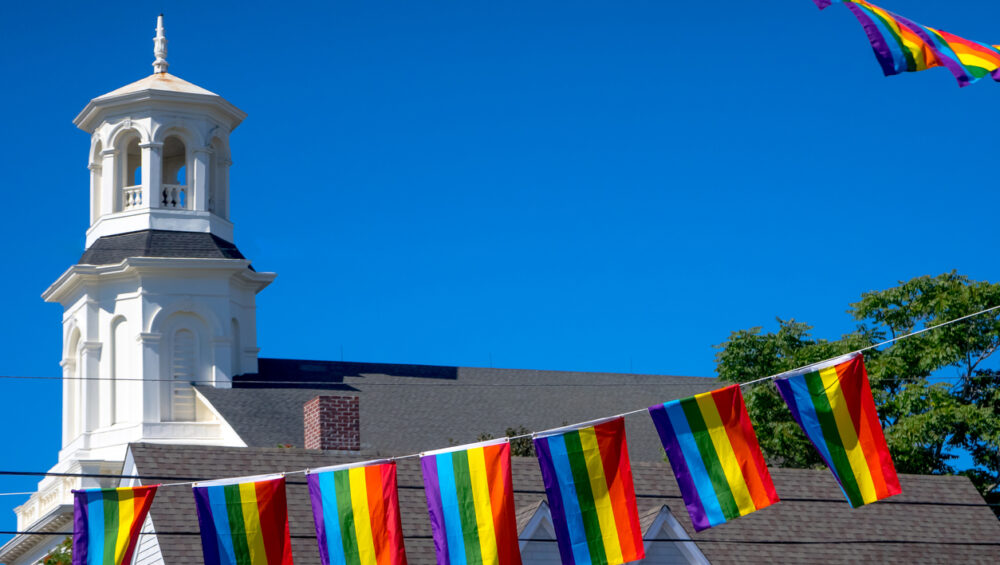In Dave Kresta’s book, Jesus on Main Street, he outlines a path for Christian congregations to engage in community economic development. Unlike traditional economic development, which can result in marginalized communities being displaced and forced to move to make way for highways or housing projects for affluent homeowners or retail, community economic development includes the effected community in the decisions and designs with their best interests at heart. This is in stark contrast to the ways rapacious capitalists want to use their land to extract the most profit. It is typically done with an eye to creating intergenerational wealth–the creation of rich uncles and aunts in neighborhoods without financial assets.
Kresta is leading a virtual book club in partnership with Neighborhood Economics; the second one is on August 9 at noon EST. Rather than starting with a systemic economic analysis of their community and discovering where the injustices lie, Kresta says an easy first way for white allies to engage is through a local startup accelerator that works with marginalized communities. “Getting engaged with micro business development, business incubation in terms like coaching, those things are good, good first steps,” Kresta said. “That appeals to churches because it’s got the personal touch, and it creates relationships.”
Through sitting down one-on-one with entrepreneurs, church members can be helpful and can use their networks to provide connections to people and resources. This allows church members to discover the individual’s particular business challenges.
“I think it’s just the reality that as you start, you start small, and that’s why I start with business accelerators, things that help businesses grow“ Kresta said. His hope is that as congregation members engage, they will come to realize how different this work is, and how much harder it is for entrepreneurs of color, particularly, to raise friends and family money to get started. All of the other social capital, lack of a network of friends and connections to people with power and influence and other barriers they face become more obvious to potential allies.
As their understanding of the systemic barriers entrepreneurs of color face grows, allies can use their individual and collective congregational influence to look at strategies like advocating for the city to use accountable development, meaning they will try not to displace poor communities on behalf of well-heeled developers with money and power, to look into solutions that preserve neighborhoods like community land trusts and community benefit agreements.
“There are a whole spectrum of strategies that involve engaging the whole community” on behalf of economic justice, Kresta said. “Those are much harder for churches to engage with and take time and education.”
The latter parts of his book, those strategies, are more of a stretch for churches. These sections encourage churches, as they get more experience in this area, to get into things like accountable development. That takes community organizing, and you have to reach out to people who have those skills and work with them. But if your church engages as a group, to engage in the public sector, you have much more power than doing it as individuals. It takes much more than just the church, but the church can have real influence and power.
After this first book club, Kresta plans to take it to Detroit, to work with a Black pastor and a group of churches who are already doing a lot of community economic development and see what his theories look like in practice with partners in a particular place.
“I highlight Pastor Barry Randolph from Church of the Messiah in Detroit in the book. This is a great example of a church that is having quite an impact on the community. They’ve created businesses that have grown and are selling tea in Whole Foods,” Kresta explained.
Randolph is connected with several churches around Detroit, and they hope to use the book as a kind of roadmap, including things Randolph can teach, as well, as they engage those churches.
“They are doing things kind of intuitively, in response to their community, and I think the book may help them think about it more holistically and systemically. I am hoping that the book can be of use in situations like that, where pastors are doing great work on the ground in real neighborhoods and in real churches and give them more context,” Kresta said.
I plan to use Kresta’s book in a class I am teaching with DeAmon Hargess to the Trinity Church Wall Streets leadership cohort. It is a class on social entrepreneurship that starts in September. The class is made up of new seminarians and people with church experience who applied to join. It also teaches basics not typically taught in seminaries like how to create a budget, conflict management, and community organizing.
Please reach out if you are interested in more information on Kresta’s online bookclub.

